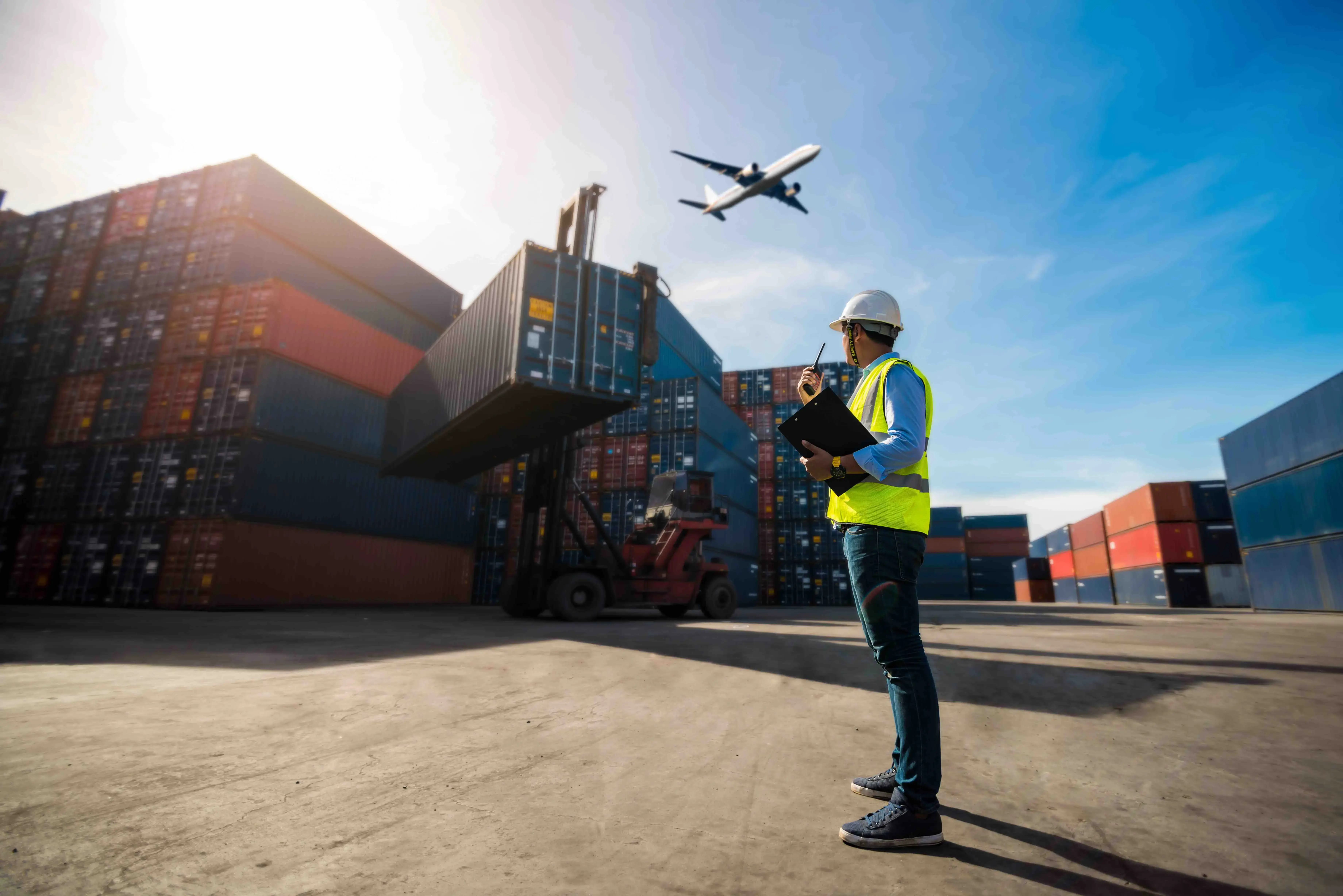Are French SMEs ready for international expansion?
 Emmanuel Bisi
Emmanuel BisiAuthor
Published On
An increasing number of French SMEs are venturing into the international arena. Despite numerous challenges (strategy, financing, recruitment, etc.) and lingering psychological barriers in the minds of some entrepreneurs, exporting represents a tremendous growth lever. Discover the interview with our CEO, Emmanuel Bisi, for Entreprendre magazine.

France has the potential to have many more exporting companies
In 2019, France had 129,000 exporting companies of goods — mainly SMEs — out of a total of three million companies. This is an increase of 4,000 from 2018 (125,000) and 5,000 from 2017 (124,000). While still limited, the trend is on the rise. "We've surpassed the stage of just a flicker," says Emmanuel Bisi, founder of Expandys, a consulting and support company for international businesses, "but we're not yet witnessing a massive movement that would ultimately catch up with our European neighbors."
How can we explain the increasing number of French companies venturing into international markets? "This can be explained by several measures dating back to the previous government's term, which helped reduce production costs in France," suggests Pedro Novo, executive director in charge of export at Bpifrance. "Furthermore, there has been an unprecedented mobilization in support of internationalization with the creation of Team France Export, deployment in regions, the establishment of dedicated teams to mobilize SMEs, bringing together chambers of commerce, regions, Business France, and Bpifrance."
While the number of exporting SMEs is growing, France still lags behind its neighbors. For comparison, Germany (300,000) and Italy (200,000) have more exporting companies. "We have an issue with exporting. But France has the potential to have many more exporting companies," indicates Emmanuel Bisi. "French SMEs have all the assets to internationalize further," adds Frédéric Rossi. Is it a matter of critical mass? "Not all French SMEs are suited for exporting and internationalization," clarifies the president of Expandys. "But it's not about size or turnover. Some companies make €1 million in turnover, with 60% of their revenue from exports, while others make €10 million and are not at all equipped for exporting." Exporting encompasses both large industrial SMEs and small businesses that can, through social networks and the development of e-commerce, sell their products in Germany or China.
"Myth," "too many difficulties": internationalization and its misconceptions
While size isn't central, several aspects are essential for considering international development. "You need to offer a product that can be exported and is differentiating — technicality, product-specific competitiveness, quality, brand, origin, distribution method — compared to the markets where the company seeks to expand," emphasizes Frédéric Rossi. Another essential criterion is the entrepreneur's willingness and strategy regarding internationalization. "At Business France," explains Frédéric Rossi, "our work involves evangelizing entrepreneurs to inspire them to go beyond borders." And dispelling the deeply rooted idea among some entrepreneurs that internationalization is incidental. "If we want to help companies grow, we must convey the message that internationalization is essential." And what about those — many — who believe that internationalization presents too many difficulties? "It's up to us to demonstrate that it's not true, that others succeed," advances the deputy general manager of Business France. "There is now an entire ecosystem of players with a one-stop-shop approach to help and support them."
For Pedro Novo, executive director in charge of export at Bpifrance, it's mainly about "endogenous reasons." "First and foremost, there's a huge psychological barrier. It's the main sticking point, ahead of the question of money. It's linked to culture, a certain risk aversion... Then there's the practice of a foreign language or doubts about one's own abilities..."
Can the resilience of the French economy explain SMEs caution?
Often, when SME leaders reject the opportunity to expand internationally, it's because of the famous "socio-cultural barrier," which ranges from "English proficiency to risk management abroad," according to Frédéric Rossi. "France didn't evolve as a nation of merchants but as a nation of engineers, unlike the Dutch, for example." "Doing business with Indian or French buyers is very different," warns Emmanuel Bisi. "SMEs must integrate this cultural dimension. A company that hasn't sufficiently taken this aspect into account will sooner or later find itself in a situation of failure."
The hesitations of French entrepreneurs can be explained by other reasons. First, the size of the French market. "Some think there's enough to do in France," judges Frédéric Rossi. Then there's the economic situation. The resilience of the French economy during the crisis hasn't encouraged SMEs to venture beyond France. "The 2008 crisis hit Italy extremely hard," highlights Pedro Novo. "The domestic market didn't respond enough, which pushed an entire generation of Italian entrepreneurs into international markets. In contrast, between 2008 and 2012, France fared better, thanks to its social safeguards, a responsive public procurement, and solid banking support. French SMEs didn't have their backs against the wall..."
"The only thing we're sure about is that we'll spend a lot of money for a year or two before it pays off..."
France's potential for exports also lies in the structuring of its economic fabric. Germany's export strength owes much to its "Mittelstand" and its thousands of medium-sized enterprises (12,000). In France, there are only between 5,500 and 6,000. While France has more SMEs than Germany, they have more difficulty venturing into international markets due to weaker financial capabilities. "Exporting requires funding, a budget, and cash flow. Therefore, more solid ETIs are mechanically better equipped than SMEs," emphasizes Emmanuel Bisi. Despite increasing margins, not all SMEs necessarily have sufficient cash flow to engage in conquering new countries.
Contrary to popular belief, expanding internationally is costly, and returns on investment often take time. "With exports," explains Frédéric Rossi, "the only thing we're sure about from the start is that we'll spend a lot of money for a year or two before it starts paying off. Internationalization takes time." Therefore, the prerequisite for developing an export strategy is to ensure that the company can absorb this investment. If an SME lacks resources, there are numerous services, aids, or guarantees available to finance this initiative, whether through Bpifrance or private banks. "There are so many ways to protect oneself and reduce risks that it's now almost less risky to develop internationally than in France," points out Pedro Novo.
Another issue with an internationalization strategy is the lack of ambition. In summary, aiming too low. "That's very French. We need to erase the word 'small' from our vocabulary," says Pedro Novo. "When it comes to internationalization and exports, we need to think big and step out of our comfort zone."
"Internationalization is a profession"
In addition to being costly, internationalization is also very time-consuming. Especially for small structures like SMEs. Establishing a presence in a country requires regular trips to sign new contracts, initiate new collaborations, and maintain close relationships with distributors, agents, or clients. "Are French SMEs Ready for International Expansion?" says Frédéric Rossi. They can seek advice from tax and legal consultants and sometimes outsource part of their sales force through companies that specialize in international trade, which can provide dedicated resources to SMEs.
In terms of exports, saving time often means recruiting. "Exporting or internationalizing isn't something you do lightly or opportunistically," says Pedro Novo. "You need to prepare your company and your employees." An SME can't just venture into exporting; it needs specific skills, including employees comfortable with foreign languages who have international experience and have operated in different markets. "You need to adapt your SME by bringing in people with the right skills: an accountant capable of managing foreign currencies, a lawyer who masters international contract drafting, an understanding of social networks and digital," emphasizes Pedro Novo.
"Internationalization is a profession," summarizes Emmanuel Bisi. "If we tell employees to take care of international matters on top of their current responsibilities, it will be the least important aspect... We need trained individuals with skills specific to each country. They're very difficult to find on your own; it's time-consuming and costly. The simplest solution is often to hire an export manager."
Internationalization, a form of "rebirth" for the company?
Other more accessible solutions exist for first-time exporting SMEs, such as the Volontariat International en Entreprise (VIE), which allows recent graduates from business schools to start their international career by accompanying a company. The volunteer can conduct market research, gain an understanding of sector players, or even initiate business in the country. SMEs can also seek assistance from private companies or public initiatives (chambers of commerce, Business France, Bpifrance).
Overall, international expansion should be perceived as strategic at the highest level of the company. "It's the key to success," assures Frédéric Rossi. "The strategy must be driven and embraced by the business owner. It shouldn't be entrusted to an export department or a dedicated person; it should involve all employees. For the company, it's like a rebirth; it's as if the leader had to recreate the company in a new context."
"The biggest problem with French companies is cultural"
Between 30,000 and 35,000 exporting companies give up their international ambitions each year. For some, it's a one-time export, while others fail to follow through after trying with an occasional buyer. To avoid going from bad to worse, the company must structure itself beforehand. Among the main causes of failure in an international development strategy are inadequate upfront preparation, poorly structured audits, neglected prospecting, or rushed recruitment. "The biggest problem with French companies is cultural: we tend to flit from one subject to another," judges Pedro Novo. "Let's follow the Germans' example by adopting their perseverance in execution and their rigor."
Once the main pitfalls have been avoided, and it's been established that the product meets the standards of the target country, the SME can implement a strategy. But not all problems are behind it. "One of the problems is pricing," highlights Emmanuel Bisi. "Take the example of an SME that manufactures pens in France. It enters the American market but realizes there are local players producing the same product cheaper without incurring logistics surcharges. It's clear this SME will have a competitiveness issue."
For an SME venturing into international markets, it's crucial to define the added value of its products compared to local competition. "What will make this product commercially successful? Innovation? Specificity? A product that's too standard won't have a differentiating element. Moreover, for a given product, a buyer will often prefer the local product to the foreign one."
At Business France, there's no single reason identified explaining the failure of some French SMEs. "We haven't identified major causes," specifies Frédéric Rossi. "It depends on cases and sectors." According to Business France's export director, the "perception of failure" has taken on a "particular form" in France. "In an international development approach, failing at certain points isn't serious; it's even part of the learning process. Often, the first step towards internationalization is to attend a trade show that brings together all sector players. There are many in Germany and Dubai, and a few in France. In this kind of event, there's a good chance the first positive contact isn't the right one. Why? There could be several reasons: the person isn't reputable, doesn't master local distribution networks, lacks the skills to develop the brand, already works with the French SME's main competitor and could block the brand's development for 2-3 years, or, in extreme cases, is simply a scammer..." How to avoid these false leads and protect against scams? "Every year, Business France organizes between 130 and 140 French pavilions at major global trade shows," explains Frédéric Rossi. "We bring together a group of SMEs each time, allowing these companies to access these shows and have a turnkey stand. Our local teams advise French companies and direct them to the right contacts. This way, we secure business owners."
Should geographical and linguistic proximity be favored?
Once the principle of internationalization has been agreed upon and conditions are met, the question arises of which country(s) or regions to target. Here again, the choice is strategic. "I advise first-time exporting SMEs to very precisely target the countries where they wish to expand and focus on one, two, or three countries. Never more'' indicates Emmanuel Bisi. ''Unfortunately, some very ambitious business owners target multiple countries."
Naturally, novice SMEs prefer geographical and linguistic proximity — French-speaking countries — to reduce risk. That's why many French companies start in Belgium, Switzerland, or North Africa, where "English isn't mandatory." "It's better to opt for neighboring countries rather than immediately jumping into major exports," adds Emmanuel Bisi. "China, Australia, the United States, or Brazil are distant areas, much more expensive, difficult to access, and therefore more complicated to start. In contrast, you can go to Barcelona and come back the same evening. For a first-time exporting SME, it's a way to get started before thinking bigger..."
For Frédéric Rossi, it mainly depends on sectors and products. "But it's obvious we won't take a business owner who has never left their country to Africa or India," emphasizes Business France's Deputy General Manager for Exports. For SMEs, it's safer to focus on the eurozone. "Exporting to European countries isn't quite exporting, but it allows you to get your feet wet," continues Frédéric Rossi. "It still has the flavor of exporting because you're going to a different country with different distribution channels and people who don't speak the same language, but without the constraints of export processes because you're operating in a single market without customs barriers..." It's no wonder that nearly 60% of French exports are made within the European Union (EU). A percentage that's unlikely to decrease given the current global situation marked by economic sanctions, Brexit, the coronavirus epidemic, and the still incomplete maturity of emerging markets. Faced with this instability, the European market has its advantages: mature markets, limited but real growth (1.4% expected in 2020), a secure legal framework, diversity in countries and distribution channels...
Are French SMEs ready for internationalization?
In the end, an SME projecting internationally must arm itself with patience before hoping for a return on investment. It often takes between 1 and 3 years — sometimes up to 5 years — before reaping the rewards of its work. "The first year," explains Emmanuel Bisi, "you spend a lot on prospecting, recruiting, product adaptation... Ultimately, several years may pass before the company fully masters the country, and sales take off."
Whether in terms of investments, recruitment, or organization, internationalization is therefore no small matter for SMEs. But this process, which takes the company beyond the borders of France and its comfort zone, can become a powerful development lever. "As long as you haven't tested your products internationally," says Pedro Novo, "you don't measure the state of the competition in your sector and don't reveal the full growth potential of your company." Internationalization, the ultimate revealer for SMEs?




